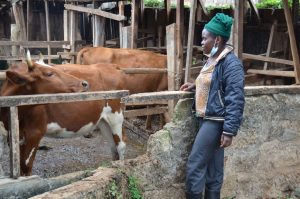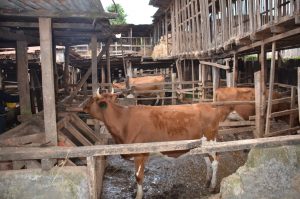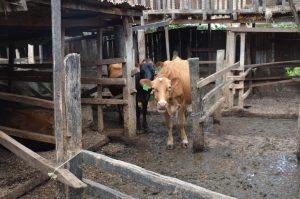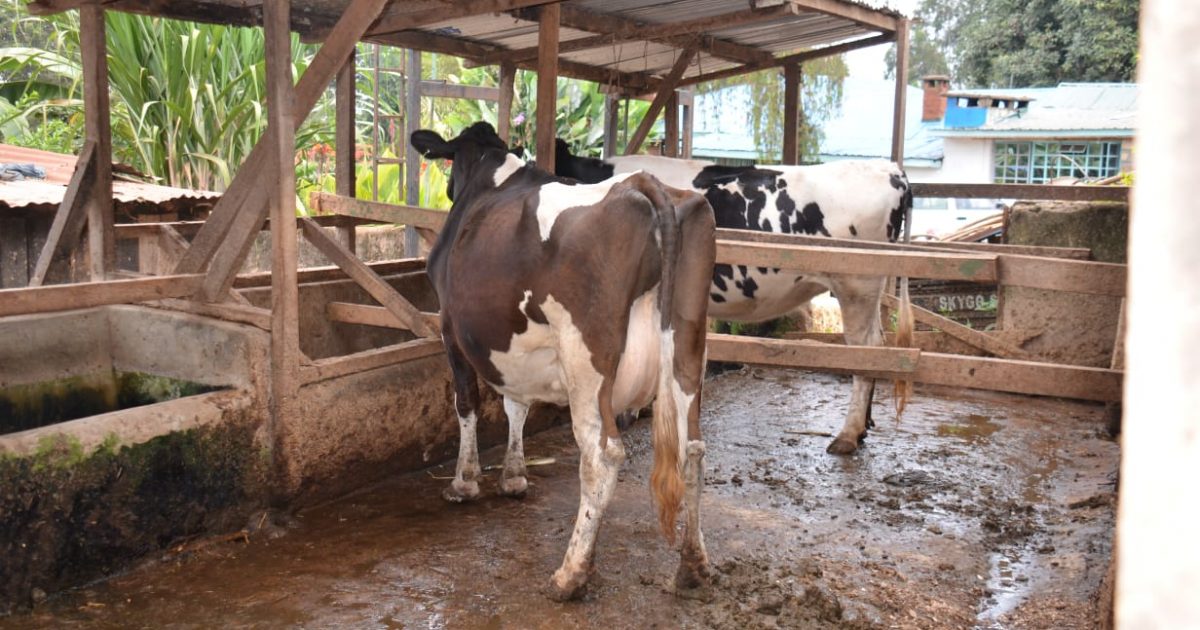When Isaac Nderi started the idea of dairy farming in a miraa-growing zone five years ago, majority of his peers discouraged him to an extent he thought of giving up the venture.
However, he held onto his idea and moved on taking the discouragements as his daily motivation to make it work.
Presently, those who discouraged him at that time are now envying him, with some trying to learn some lesson on how to go about dairy farming now that miraa business has collapsed following closure of major markets.
His influence is making a good number of residents of Igembe North start adopting dairy farming even though for a long time they have been known for large-scale miraa farming and some little food crop cultivation.

Mr Nderi is an exemplary dairy farmer who owns Mlinzi Ni Mungu Dairy Farm in Nkandone area in the constituency.
He attributes his success to his passion for dairy farming and insights he gets by visiting agricultural institutes like Kaguru Agricultural Training Centre in Imenti South.
In his quarter-acre-piece of land, he keeps 30 dairy cows of Ayrshire and Freisian breeds and employs six workers who work on the farm and his dairy shops in Laare town and Nkandone.
“The farm is solely for milk production and if a cow calves a bull, I give it to my two boys who help me on the farm as a way of motivating and appreciating their work,” said Mr Nderi adding that the bulls are not included anywhere as part of the workers’ monthly pay.
In a single day, his cows can produce 150 litres of milk which he distributes in his two dairy depots located at Laare and the rest is sold to neighbouring homes and local hotels.
This translates to about Sh7, 500 in a single day and a gross earning of Sh225, 000 per month.
“From milk only, I get about Sh100, 000 income per month after deducting other expenses including workers’ pay,” said Mr Nderi.
He added: “This is without including the amount of milk consumed by calves that are below three months, with each calf consuming approximately seven to eight liters per day.”

Nderi said there is usually no waste on his farm since he uses the manure from the cow dung on his farms and sells the rest, which goes for Sh40, 000 per lorry load.
“Like human beings, cows too need a lot of attention and care. These include: better sleeping conditions, balanced diet, proper medical care and hygiene,” Nderi said.
To make his cows nap and relax, he gives them fermented porridge, because it is after sleeping, the cows will produce a good amount of milk.
Nderi emphasised the need for giving cows dry grass and enough water because cows consume less of this than green products like fresh nappier grass, which only lasts in their stomach for a short time.
Apart from the dry and green grass, Mr Nderi also feeds his cows with processed feeds according to the needs of an individual cow.
“I give canola and sunflower to pregnant cows since they are rich in protein. They also need dry salts which provide iodine to expectant cows and whose deficiency has been associated with stillbirths and weak newborn calves,” says Mr Nderi.
Nderi’s cows are usually served two to three months after delivery, but if a cow is not ready for mating, he uses GONAbreed injection to induce heat and the cow becomes ready to be served after 24 hours.

He has partitioned his cow-pen into four sections, including maternity (for the cows that have freshly given birth), a second one for suckling, another for calves that are past suckling, and the fourth one houses the expectant cows.
Nderi has adopted technology where he uses a milking machine to milk his cows and has also installed CCTV cameras that assist him in security and monitoring the progress of his herd.
He added: “By use of the CCTV cameras, I can tell when any of my cows is on heat, hurt or when giving birth even when I am far from the farm. I only need to connect my phone to the cameras and then instruct my farm assistants on what to do next.”
Out of this farming, Mr Nderi has been able to acquire about 20 acres of land, two lorries, and a Toyota probox vehicle that he uses on the farm.
Mr Nderi encourages young people especially from the miraa-growing region to venture into dairy farming adding that it is a well-paying venture that only requires passion.
Like any other business, his farm undergoes challenges like spoilage of milk due to lack of appropriate storage such as coolers.
He called on the government to ensure the availability of foot and mouth disease doses at affordable prices to cushion dairy farmers from losing their animals to the disease.
By Brenda Gakii and Dickson Mwiti





